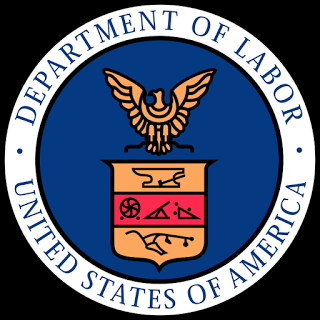 Americans like to think that we live in the best country in the world, but that is not true in every area of human endeavor. In the area of paid leave for workers, the United States actually comes in last -- being the only developed nation that does not guarantee all workers at least some paid leave.
Americans like to think that we live in the best country in the world, but that is not true in every area of human endeavor. In the area of paid leave for workers, the United States actually comes in last -- being the only developed nation that does not guarantee all workers at least some paid leave.There is no excuse for that. The United States is still the richest nation in the entire world and refuses to guarantee any paid leave for workers. Democrats have tried to pass a requirement for poker paid leave, but the Republicans (at the behest of their corporate masters) have blocked every attempt to do so.
The following op-ed from 8/5/16 is by Jane Farrell of the Labor Department:
As we gear up for the start of the 2016 Summer Olympics, there’s one race where the United States has already fallen behind: the sprint for paid leave. Twenty-three years ago today, the Family and Medical Leave Act went into effect – a law that today provides nearly 60 percent of working Americans with up to 12 weeks of unpaid, job-protected family and medical leave annually. But we have a long way to go before we can sport any medals. Since 1993, the U.S. has only fallen further behind nearly every other nation when it comes to paid maternity leave, and we rank dead last among developed nations when it comes to providing some form of paid leave. While we’re still far from gold, there is a silver lining: states, cities and employers are moving paid leave down the field. Since 1993, three states – California, New Jersey, and Rhode Island – have all enacted paid family leave laws on top of existing medical leave programs. And New York passed similar legislation earlier this year that will go into effect in 2018. Over the past three years, over two dozen localities across the country – from Seattle to Austin to Kansas City to Newburgh Heights, Ohio – have implemented policies that provide paid parental leave to municipal employees. Private employers are also recognizing the benefits of paid leave firsthand. After increasing its paid maternity leave policy from 12 to 18 weeks, Google saw its retention rate for new moms increase by 50 percent. Patagonia offers eight weeks of paid family and medical leave so employees can care for themselves or any loved one, old or young, without worrying about a loss of income on top of the stress of recovery or caregiving. Nike, a sponsor of many Olympic athletes, also offers up to eight weeks of family caregiving leave to full-time employees and an additional six weeks for new moms. Spotify offers up to six months of paid leave to new moms and dads to help attract and retain quality employees, and because “it’s the right thing to do.” But no hardworking American should have to win the boss lottery to have paid, job-protected leave. A universal paid family and medical leave program would have countless benefits for our society and economy, and the costs of inaction are steep. In 2012, 70 percent of men taking leave for parental reasons took fewer than 11 days, largely because the leave was unpaid. And 60 percent of workers who didn’t get their full paycheck while on family or medical leave reported having difficulty making ends meet. Nationwide, nearly 25 million working Americans also provide unpaid care to their elders, without the benefit of paid family leave. There are also less obvious costs –work-family policies that enable workers to be both breadwinners and caregivers would go a long way to help boost U.S. women’s labor force participation rate. American workers shouldn’t have to choose between family and money, or their health and a paycheck. They deserve better. They deserve the gold standard of leave – a policy that is equitable, fair and inclusive. Fortunately, thanks to the hard work of advocates, policymakers and forward-thinking business leaders, the momentum behind paid leave is picking up speed. For this reason and many more, I’m hopeful we’ll cross that finish line before athletes board their planes to Tokyo in 2020.

